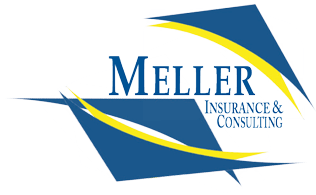Funding Options
Personalized Service | Patient Protection and Affordable Care Act Certified | Over 40 Years of Experience
Personalized Service
Patient Protection and Affordable Care Act Certified
Over 40 Years of Experience
Easy Funding Options for You
Meller Insurance & Consulting offers three different types of funding. Each type carries its own set of administrative rules and legal constraints.
- Fully insured
- Partially self funded
- Self funded (stop-loss program)
Learn More About Our Funding Types
Fully Insured
Under this health benefit plan, the insurance company will assume the financial and legal risk of loss in exchange for a fixed premium paid to the carrier by the employer. This plan is mostly beneficial to employers with less than 100 employees. Call
us to learn more.
Self-Funded
Employers who choose the self-funding plan fund their medical benefits by themselves and don't pay the premium tax or insurance company profit.
Call us to learn more.
- Stop-loss insurance: Employers with self-funded health plans typically carry stop-loss insurance to reduce the risk associated with large individual claims or high claims from the entire plan.
- Individual or specific stop loss insurance: This protects a self-funded employer against large individual health care claims. Essentially, it limits the amount that the employer must pay for each individual.
- Aggregate stop-loss insurance: This protects the employer against high total claims for the health care plan.
Partial Self-funding
This plan utilizes a fully insured contract versus stop-loss insurance contracts used by self-funded plans. Purchase of higher deductibles and out-of-pocket maximums then what a typical fully insured plan might resemble is what this concept is all about.
The partial self-funded high deductible product will also include office visit, emergency room, and Rx co-pays that mirror the same levels used in the fully insured product.
The only difference between the employee plan and the purchased plan would be the difference in deductibles and out-of-pocket maximums which will need to be administered by a third-party administrator (TPA). The same entities used to administer self-funded plans.
The higher deductible fully insured products used for partial self-funding are approximately 19-20% lower in premium then the traditional fully insured product. The difference in deductibles and out-of-pocket maximums is referred to exposure and when multiplied by the number of plan participants provides total maximum exposure.
We can actuarially predict what portion of dollars are needed to partial self-fund the plan exposure to the employee level. It typically runs in the 20-25% range of the premium dollars saved.
A savings illustration example for $1,000,000 in traditional fully insured premium would be a $200,000 reduction in premium by using a higher deductible and out-of-pocket plan and then needing $50,000 to partial self-fund, resulting in a $150,000 savings.
The third-party administration cost equates to approximately 1% (Approximately $7.00 per employee per month.

Share On: